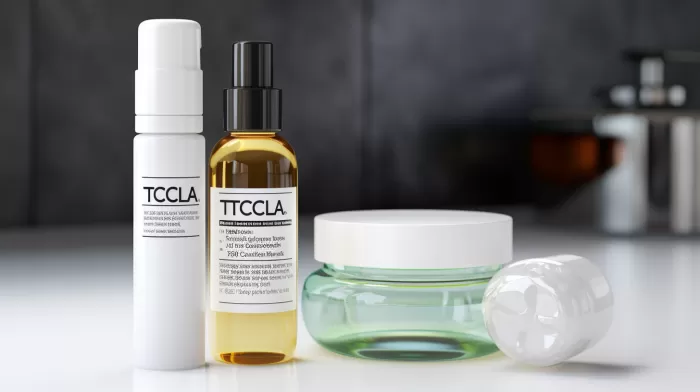If you’re one of the million people who have sought the help of a dermatologist for a chemical peel, you might want to take a closer look at the substance your doctor uses for the procedure. Recent lab research has raised alarm bells over the use of TCA (trichloroacetic acid), a common ingredient in chemical peels that can potentially cause cancer.
What happens during a chemical peel?
For those unfamiliar with the popular cosmetic procedure, a chemical peel is a treatment that involves applying an acidic solution to the skin, causing the outer layers to exfoliate and eventually peel off. This helps remove damaged skin cells, age spots, and scars, leaving a fresh, smooth, and more youthful-looking complexion.
Despite its frequently positive results, this widely sought-after treatment may come with unforeseen risks. The International Agency on Cancer Research is pushing for TCA, one of the key components in chemical peels, to be officially recognized as a carcinogenic chemical. California has already moved in this direction and proposed adding TCA to its toxic substance registry.
Martha Sandy, chief of the Reproductive and Hazard Assessment Branch of the California Environmental Protection Agency, told The New York Times: “When there’s evidence of carcinogenicity in animals, we assume it has the potential to cause harm in humans. One of the purposes of putting a compound on the list is to make the public aware of the current state of scientific knowledge.”
The dangers of TCA
To fully understand the extent of this potential risk, it’s important to delve into the scientific details. TCA is a derivative of acetic acid, which is the primary acid found in vinegar. TCA gained popularity in chemical peels due to its ability to penetrate and break down skin proteins more effectively than other acids used in skincare products. This encourages rapid exfoliation and stimulates new cell growth, resulting in a smoother and more even skin texture.
While TCA has its merits as a chemical peel ingredient, the possibility that it’s carcinogenic can’t be ignored. In line with the International Agency on Cancer Research’s findings, evidence from animal studies suggests that TCA may interact with DNA, leading to genetic mutations and tumor formation.
Additionally, other concerns surface with the use of TCA. Some people may react poorly to the chemical, experiencing side effects such as redness, irritation, or even burns. Such a potent chemical carries the risk of damaging the skin barrier and potentially leading to infection or scarring.
What can you do to minimize your risk?
So, what do you do if you want to maintain your skin’s youthful appearance without exposing yourself to potentially harmful chemicals? Here are some suggestions:
1. Consult with your dermatologist
Talk to your dermatologist about any concerns you may have regarding TCA and chemical peels. They can help explain the risks and benefits involved and suggest alternative treatments appropriate for your skin type and condition.
2. Consider TCA alternatives
Inquire about other options that do not involve TCA for treatment. There are a number of lighter, less invasive peels that use other acids, such as glycolic or lactic acid. These acids are derived from natural sources, are gentler on the skin, and are less likely to cause serious side effects.
3. Take precautions
If you’re undergoing a chemical peel with TCA, make sure your dermatologist performs the treatment in a safe manner. Effective safety measures can be taken, such as wearing protective goggles, using a sunscreen with a sun protection factor (SPF) of 30 or higher, and closely following post-procedure instructions to care for your skin during the healing process.
4. Opt for a holistic approach to skincare
Whether or not you choose to undergo a chemical peel, it’s essential to maintain a consistent skincare routine that includes regular cleansing, exfoliation, and moisturization. A balanced diet, exercise, and good sleep habits are all important factors in maintaining a healthy and youthful appearance.
In summary
Although TCA can deliver impressive results in the short-term, its potential link to cancer should be considered seriously. As with any medical procedure, it’s crucial to stay informed and weigh the risks against the potential benefits. Make sure you discuss all concerns with your dermatologist and explore any alternative treatment options before deciding on a chemical peel.



